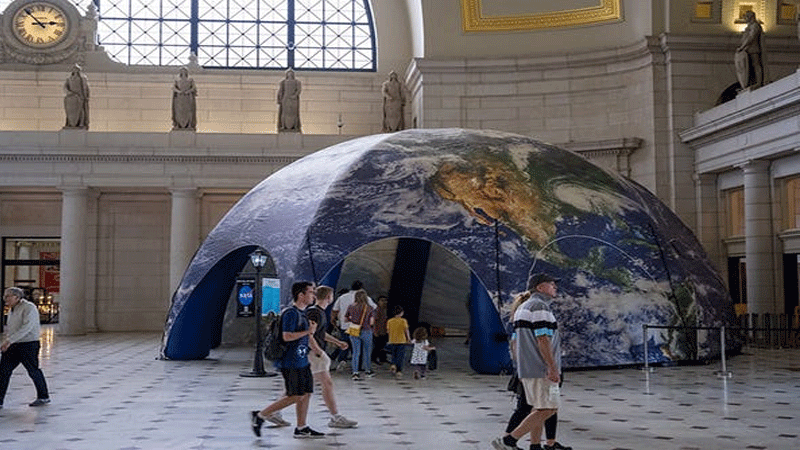NASA will hold a live Earth Day celebration at Union Station in Washington, D.C, on April 20 and 21, from 10 a.m. to 4 p.m. Eastern Time.

NASA will hold a live Earth Day celebration at Union Station in Washington, D.C, on April 20 and 21, from 10 a.m. to 4 p.m. Eastern Time. The event will include 20 interactive activities and a chance to learn about the various Earth science projects NASA is working on.
NASA uses its orbital location to advance humankind, the environment, and future generations. On April 22, anyone who wants to learn how the satellite fleet, airborne campaigns, and ground-based observations help NASA’s team track the condition of the planet and share that information with scientists and citizens around the world is welcome to attend in person or online.
Through videos, interactive science content, a kid-friendly fun zone, a scavenger hunt, and hundreds of downloadable resources, users can explore the relationships between Earth’s atmosphere, oceans, forests, fields, cities, ice caps, and climate online.
There will be some content available in Spanish. An Extraordinary Earth Day Celebration, Earth Inside and Out — Join NASA scientists from across the country for this unique event featuring student artwork from Crayola’s 2023 Creativity Week in collaboration with Crayola Education.
Through the agency’s citizen science projects, volunteers have helped make thousands of important scientific observations and some discoveries. More than 400 NASA citizen scientists have even been named as co-authors on peer-reviewed scientific publications.
In order to monitor and manage the food we eat, the air we breathe, and the difficulties faced by communities in the path of severe weather, decision-makers around the world use NASA’s cutting-edge tools and data.
To share knowledge about climate change and other environmental issues, NASA collaborates with the National Oceanic and Atmospheric Administration, the U.S. Geological Survey, state and local governments, and international organisations.
But NASA is also committed to “open science,” which is the practise of making data available, collaborative, inclusive, and transparent for everyone, from scientists and students to city managers and citizens.